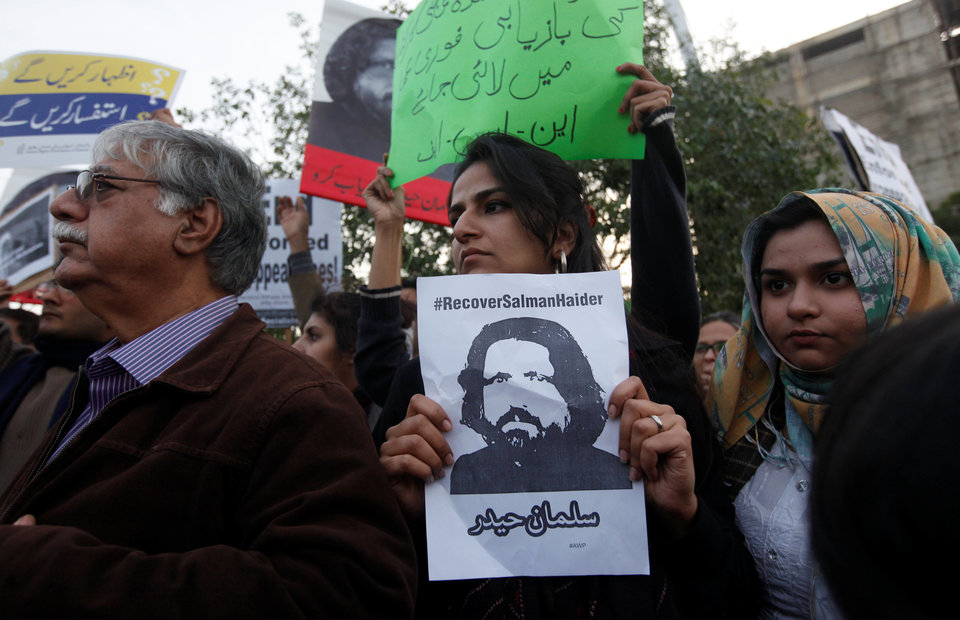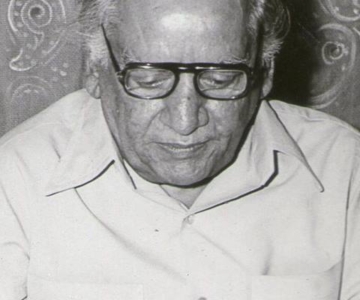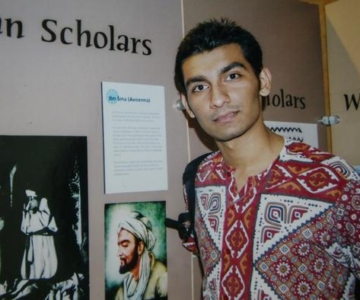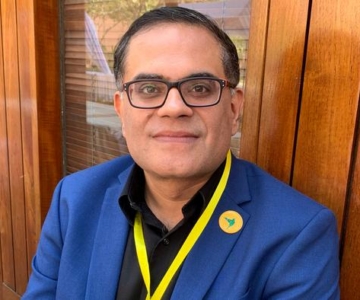An activist holding an image of Salman Haider during a protest to condemn the disappearances of social activists, in Karachi, Pakistan, this month. Credit Akhtar Soomro/Reuters
Jan 20, 2017: Bring Pakistan’s Missing Bloggers Home (The New York Times)
Since Jan. 4, at least five bloggers and activists have disappeared in Pakistan. Perhaps the best known is Salman Haider, a poet and academic who has been a vocal opponent of religious extremism and the Pakistani authorities’ abuse of opposition activists. The others who have vanished had the courage to critique organized religion, the influence of clerics in Pakistan and the country’s powerful military on social media.
Throughout Pakistan’s history, dissent and free speech have been muzzled by a state that inherited a repressive legal framework from the British colonizers who ruled the Indian subcontinent until 1947. Journalists, poets, intellectuals and many politicians who questioned the state were labeled traitors, sometimes jailed or exiled, and on occasion killed. Almost every Pakistani government — military or civilian — has tried to control and manipulate the news media.
That kind of control has become more difficult as print and electronic media have expanded in the past decade and a half. Since the deregulation of electronic media in 2002, Pakistan has gone from three to 89 television channels. The state’s monopoly of the airwaves is over. Noisy talk shows regularly challenge the elected governments and their policies. But when it comes to the military, journalists and commentators are cautious, often indulging in self-censorship. Laws governing freedom of speech and the news media are vague, and their enforcement is arbitrary; critics are often accused of endangering national security.
The rise of social media and blogs has further expanded the space for dissent. Pakistanis can say on Facebook things they still could not get away with on television or in print. The missing activists, for example, were allegedly affiliated with satirical Facebook pages that ridiculed the hypocrisy of religious clerics and the flawed state policies of using jihad to further foreign policy goals.
Last year, the Parliament passed a draconian cybercrimes law curtailing digital freedoms. This law grants the government overarching powers to control and block information that state officials find offensive, examine and retain users’ data, and impose harsh penalties for a variety of offenses. The law builds on the narrow definition of freedom of speech that the Constitution guarantees in principle but with a number of exceptions that include “glory of Islam,” “the integrity, security or defense of Pakistan” and “public order, decency or morality,” among others. Such ambiguous terms are easily invoked to suppress dissent.
After the enactment of the cybercrime law, Pakistan’s intelligence agencies reportedly asked for legal cover to take pre-emptive “action” against people they believed were breaching national security. This demand was accepted. It is unclear whether the five bloggers and social media activists have disappeared under this arrangement. In fact, there is no information from any official source. But there is good reason to be worried.



